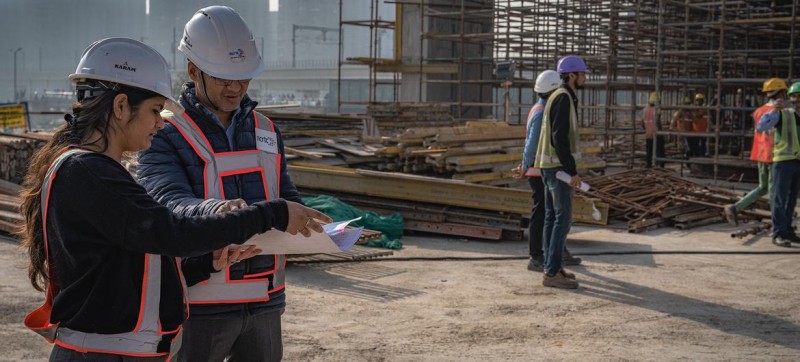
© ADB/Eric Sales Workers discuss plans at a rapid transit construction site in Delhi, India.
The two-day meeting has been organized by the International Labour Organization (ILO) to inform its proposal for a Global Coalition for Social Justice, aimed at reducing and preventing inequalities.
“The world is at a decisive moment. Today’s policies on climate, on threats to global security, on social solidarity and more, will shape our future and that of our children and grandchildren,” he said.
As such, the Summit provides an opportunity “to explore solutions that will make that future more just, equitable, sustainable and inclusive”, he added.
A ‘seismic shift’
Mr. Guterres noted that the world of work “is changing at warp speed”, amid ongoing common challenges, including the impact of the COVID-19 pandemic and rising poverty, hunger, inequality, hatred and discrimination.
Furthermore, the climate crisis, conflict and humanitarian emergencies are uprooting and disrupting the education and working lives for hundreds of millions worldwide.
The fourth industrial revolution is unfolding against this chaotic backdrop, he said.
“We cannot predict its results – but we already know the outlines of the seismic shift that is underway: greater automation; the digital transition; a shift towards renewables; sustainable production; and a need for quality education, reskilling and retraining,” he added.
Prepare now
This change means that jobs will be lost in some areas and created in others, requiring different skills, and “we must prepare now, to avoid even greater divisions, injustice and mistrust.”
Mr. Guterres said the ILO has been at the forefront of laying out a roadmap to navigate the transitions to a sustainable and just future of work, and its “foundation” must be social justice.
Putting people first
He said the Global Coalition for Social Justice represents a crucial force to help advance sustainable development and meet current and future challenges.
The initiative “is about rebuilding the social contract through people-centred policies grounded and guided by social justice.”
He stressed that the social contract must have women and young people at the centre and encompass equal opportunities for all; access to essential services; lifelong education and training; decent jobs and social protection.
The Secretary-General pointed to the Global Accelerator on Jobs and Social Protection, which he launched in September 2021.
The UN platform will coordinate international financing for hundreds of millions of new jobs and extend social protection to four billion worldwide who are without coverage.

